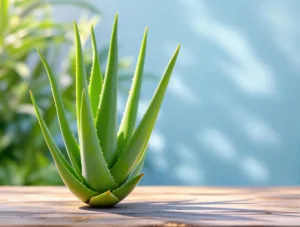The Ultimate Guide to Daily Hair Care with Natural Ingredients
Introduction
Healthy, lustrous hair is a universal desire, yet achieving it often feels like an elusive goal. With countless products promising miraculous results, many people overlook the power of natural ingredients in maintaining hair health. This comprehensive guide explores a daily hair care routine using nature’s best offerings—ingredients that nourish, strengthen, and revitalize hair without harsh chemicals. Whether you struggle with dryness, breakage, or dullness, this article provides actionable tips and expert insights to transform your hair care regimen.
Understanding Hair Structure and Common Problems
The Science of Hair
Hair is composed primarily of keratin, a protein that forms its structure. Each strand consists of three layers:
- Medulla – The innermost layer (not always present in fine hair).
- Cortex – The middle layer, responsible for strength, color, and texture.
- Cuticle – The outer protective layer that shields hair from damage.
When the cuticle is damaged, hair becomes prone to frizz, breakage, and dryness. Environmental factors (sun exposure, pollution), chemical treatments (coloring, perms), and poor nutrition can all contribute to hair deterioration.
Common Hair Concerns
- Dryness & Frizz – Caused by lack of moisture, excessive heat styling, or harsh shampoos.
- Hair Fall & Thinning – Often linked to stress, hormonal imbalances, or nutritional deficiencies.
- Dandruff & Scalp Irritation – Results from fungal growth, dry scalp, or product buildup.
- Split Ends & Breakage – Due to mechanical damage (brushing, styling) or protein loss.
Understanding these issues helps tailor an effective natural hair care routine.
The Benefits of Natural Ingredients in Hair Care
Synthetic products often contain sulfates, parabens, and silicones that strip hair of natural oils. In contrast, natural ingredients provide essential nutrients without side effects. Key benefits include:
- Gentle Cleansing – Natural cleansers (like soap nuts or aloe vera) remove dirt without over-drying.
- Deep Nourishment – Oils (coconut, argan) penetrate the hair shaft, improving elasticity and shine.
- Scalp Health – Ingredients like tea tree oil and apple cider vinegar combat dandruff and inflammation.
- Sustainable & Eco-Friendly – Reduces chemical runoff and environmental harm.
Daily Hair Care Routine Using Natural Ingredients
1. Cleansing: Choosing the Right Natural Shampoo
Conventional shampoos often contain sulfates (SLS/SLES), which strip natural oils. Alternatives include:
- Shikakai & Reetha (Soap Nuts) – A traditional Ayurvedic cleanser that gently removes impurities.
- Aloe Vera Gel – Soothes the scalp while providing mild cleansing.
- Baking Soda & Apple Cider Vinegar Rinse – Balances pH and removes buildup (use sparingly to avoid dryness).
Tip: Wash hair 2-3 times a week to prevent over-stripping natural oils.
2. Conditioning: Hydrating with Natural Oils and Masks
After cleansing, conditioning is crucial to restore moisture. Effective natural conditioners include:
- Coconut Oil – Penetrates the hair shaft, reducing protein loss and preventing breakage.
- Avocado & Honey Mask – Rich in vitamins E and B5, it deeply moisturizes dry hair.
- Yogurt & Egg Mask – Provides protein for weak, brittle strands.
Application: Apply from mid-length to ends, leave for 20-30 minutes, then rinse with cool water.
3. Scalp Care: Preventing Dandruff and Promoting Growth
A healthy scalp is the foundation of strong hair. Try these remedies:
- Rosemary & Peppermint Oil – Stimulates blood circulation, encouraging growth.
- Tea Tree Oil – Antifungal properties help combat dandruff (mix with a carrier oil).
- Onion Juice – High in sulfur, it boosts collagen production for thicker hair.
Tip: Massage the scalp for 5-10 minutes daily to enhance nutrient absorption.
4. Styling: Protecting Hair Naturally
Heat tools and chemical-laden products cause long-term damage. Safer alternatives:
- Aloe Vera Gel as Heat Protectant – Forms a protective barrier against styling tools.
- Flaxseed Gel – A natural hold product for curls and waves.
- Braiding or Silk Wraps – Reduces friction and breakage while sleeping.
5. Diet & Hydration: Internal Hair Health
What you eat directly impacts hair growth and strength. Essential nutrients include:
- Protein (Eggs, lentils) – Keratin is protein-based; deficiency leads to weak hair.
- Omega-3 Fatty Acids (Flaxseeds, walnuts) – Nourish follicles and add shine.
- Vitamins A, C, E (Leafy greens, citrus fruits) – Promote sebum production and collagen synthesis.
Tip: Drink at least 2 liters of water daily to maintain hydration.
Final Thoughts: Building a Sustainable Hair Care Habit
Transitioning to a natural hair care routine requires patience—results may take weeks, but the long-term benefits outweigh temporary fixes. Consistency is key:
- Weekly Treatments – Use deep-conditioning masks.
- Trim Regularly – Prevents split ends from worsening.
- Avoid Overwashing – Preserves natural oils.
By embracing nature’s remedies, you not only enhance your hair’s health but also contribute to a greener planet. Start small—swap one synthetic product for a natural alternative today and witness the transformation.
Would you like any modifications or additional details on specific hair types?









Add comment